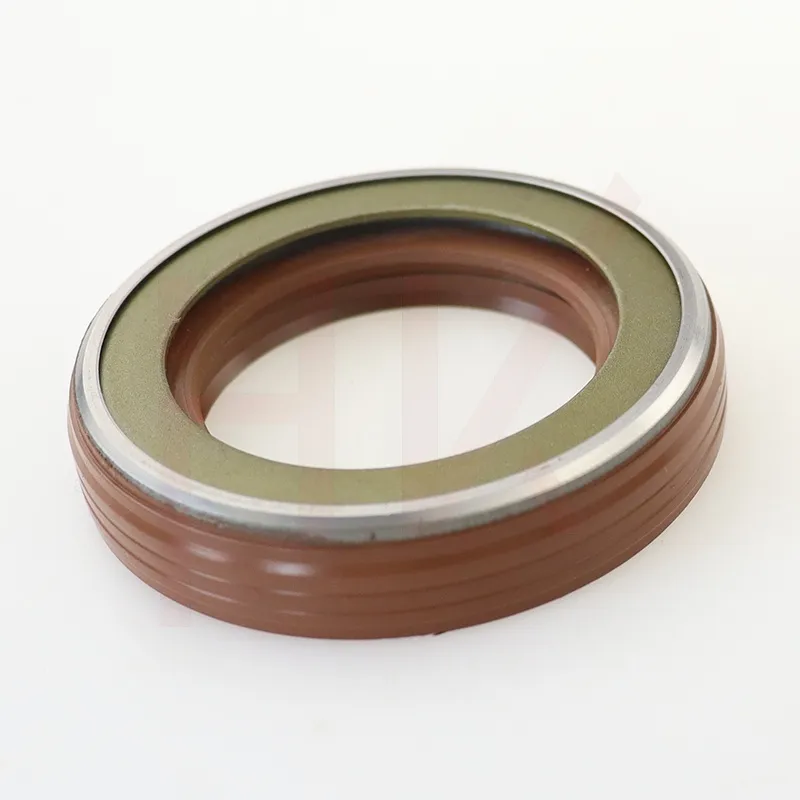Dec . 07, 2024 12:57 Back to list
oil seal hydraulic
Understanding Oil Seal Hydraulics A Key Component in Mechanical Systems
Oil seals are essential components in hydraulic systems, playing a critical role in ensuring the efficient operation of machinery. They are designed to prevent the leakage of fluids and debris into or out of a system, thereby protecting vital machinery parts and contributing to enhanced performance, reliability, and longevity of equipment.
What is an Oil Seal?
An oil seal, also known as a lip seal or rotary seal, is a device used to contain lubricants in a machine while preventing the ingress of dirt, dust, and moisture. They are typically made from elastomers such as rubber, which provides flexibility, strength, and resistance to various chemicals and environmental factors. The design of an oil seal comprises a flexible lip that makes contact with a rotating shaft, ensuring a tight seal that minimizes fluid leakage.
The Importance of Oil Seals in Hydraulic Systems
Hydraulic systems rely on the precise movement of fluids to generate force and perform work. An oil seal's primary function in these systems is to maintain pressure and prevent hydraulic fluid from leaking, which is crucial for operational efficiency. Without a properly functioning oil seal, a hydraulic system may suffer from fluid loss, leading to decreased pressure and performance issues.
Moreover, leaks can cause contamination of the hydraulic fluid, which can deteriorate system components, resulting in costly repairs and downtime. Therefore, choosing the right oil seal is vital for maintaining system integrity and performance.
Types of Oil Seals
Oil seals come in various shapes and designs, tailored to specific applications. Some common types include
1. Single Lip Oil Seals Designed for standard applications where only one side needs to be sealed. They are generally used to keep lubricants in and contaminants out.
oil seal hydraulic

2. Double Lip Oil Seals These seals contain two sealing lips and are often employed in more demanding applications, providing an extra layer of protection against leakage and contamination.
3. Spring-Aided Oil Seals Incorporating a spring mechanism, these seals maintain consistent pressure against the shaft, ensuring an effective seal even in conditions of wear or temperature fluctuations.
4. Mechanical Seals Used in high-pressure applications, mechanical seals provide a reliable sealing solution that can handle extreme conditions while minimizing the risk of leaks.
Factors Influencing Oil Seal Performance
Several factors can affect the performance and longevity of oil seals in hydraulic systems
- Material Composition The choice of material significantly impacts the seal's resistance to temperature, pressure, and chemical exposure. - Operating Environment Harsh conditions, such as high temperatures and corrosive fluids, require seals specifically designed to withstand such environments.
- Installation Quality Proper installation is crucial; an incorrectly installed seal may lead to premature failure and leaks.
- Maintenance Regular inspection and timely maintenance can extend the life of oil seals and prevent costly breakdowns.
Conclusion
In summary, oil seals are fundamental components of hydraulic systems, ensuring fluid containment and protecting machinery from contamination. Understanding the types of oil seals and their specific applications can help in selecting the right seal for a given hydraulic system. As technology advances, the design and materials used in oil seals continue to evolve, offering improved performance and durability. Adopting best practices in installation and maintenance will further enhance their effectiveness, safeguarding the integrity of hydraulic systems and ensuring optimal operational efficiency. Investing in high-quality oil seals can pay dividends in the long run, minimizing downtime and repair costs while maximizing productivity.
-
TCN Oil Seal Metal Ring Reinforcement for Heavy Machinery
NewsJul.25,2025
-
Rotary Lip Seal Spring-Loaded Design for High-Speed Applications
NewsJul.25,2025
-
Hydraulic Cylinder Seals Polyurethane Material for High-Impact Jobs
NewsJul.25,2025
-
High Pressure Oil Seal Polyurethane Coating Wear Resistance
NewsJul.25,2025
-
Dust Proof Seal Double Lip Design for Construction Equipment
NewsJul.25,2025
-
Hub Seal Polyurethane Wear Resistance in Agricultural Vehicles
NewsJul.25,2025
-
The Trans-formative Journey of Wheel Hub Oil Seals
NewsJun.06,2025
Products categories
















